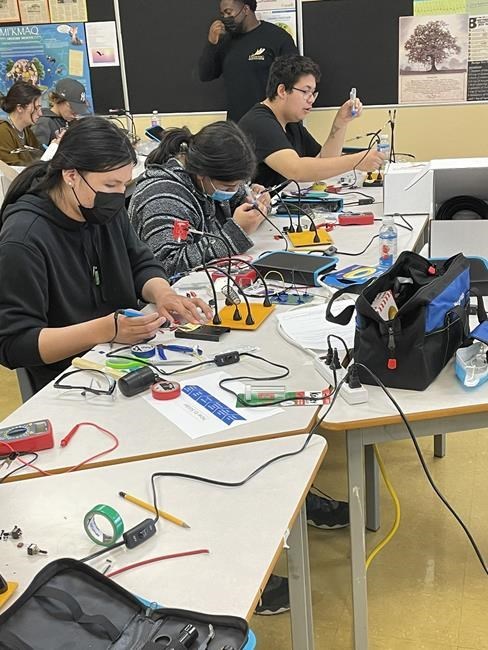HALIFAX — Closing the employment gap for Indigenous youth in Atlantic ÎÚŃ»´«Ă˝ is key to easing the region's acute labour shortage, new research released Thursday said.Â
The Atlantic Provinces Economic Council said employment outcomes for the region's growing Indigenous youth population have improved in recent years, but still lag non-Indigenous youth.
The research found Indigenous youth under age 25 face a number of barriers in the labour market, including lower educational attainment and a lack of resources such as transportation.Â
Increasing funding for Indigenous youth training, skills development and entrepreneurship would help improve labour market outcomes of Indigenous youth, the report said.Â
This would boost economic development in Indigenous communities a well as help address a labour crunch in the broader economy, the research found.Â
APEC senior policy analyst Fred Bergman, the report's lead author, said Atlantic Indigenous youth living off-reserve have experienced substantial improvements in labour market outcomes between 2007 to 2021.
But they still have lower employment rates than non-Indigenous youth, he said.Â
“Reducing barriers and closing gaps is essential to promote economic development in Indigenous communities,” Bergman said. “This will also expand the pool of skilled workers in our economy to help address ongoing labour shortages across the region.”
Almost 49,000 jobs were vacant across the Atlantic region in April 2022, bringing the vacancy rate to a record high of 4.9 per cent.Â
"Getting off-reserve Indigenous youth’s employment rates to the same level as non-Indigenous youth would add 540 new workers to the region," the report said.Â
This report by The Canadian Press was first published July 14, 2022.
The Canadian Press



